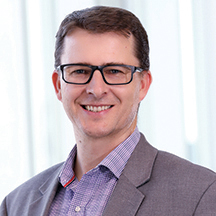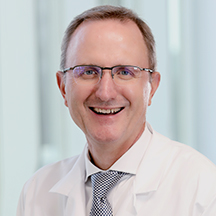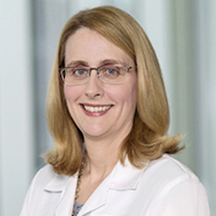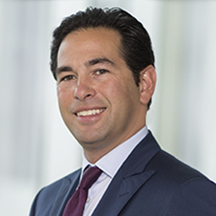Experts at the Brain Health Center face challenges of increasingly prevalent disorders impacting mood, memory, physical health and vitality.
WRITTEN BY SHARI ROAN
With roughly 10,000 people turning 65 each day in this country, the rates of people with cognitive impairments and movement disorders are soaring. Meanwhile, among Americans of all ages, the prevalence of mental health disorders is at a record high.

To recognize this almost overwhelming challenge is one thing; to attempt fundamental change and help spur a paradigm shift in treatment is quite another. But that is the vision of the new Pacific Brain Health Center (PBHC) as conceived by PNI director and founder, Daniel F. Kelly, MD, and by PBHC director and geriatric psychiatrist, David A. Merrill, MD.
By bringing together a group of highly experienced psychiatrists, neurologists, gerontologists, cognitive neuropsychologists, as well as experts in physical fitness, the PBHC plans to tackle these significant health challenges.
In a multimodal approach, these experts focus in the following areas:
- Alzheimer’s dementia and related memory and cognitive disorders
- Healthy brain aging using nutritional and hormonal approaches, exercise, meditation/mindfulness, and other novel therapies
- Physical and cognitive health programs that combine exercise and mental stimulation to sustain and enhance brain health
- Balance issues and fall prevention, and the neuromuscular disorders program that both aim to optimize the patient’s ability to keep exercising which is directly related to memory
- Psycho-oncology support which addresses and treats the anxiety and depression associated with a cancer diagnosis
The team will also optimize brain recovery and minimize treatment-related insults in patients with benign and malignant brain tumors, stroke and traumatic brain injury.
EXPERTS WHO COLLABORATE


Embracing all aspects of brain health, PNI faculty think creatively about ways to improve patients’ lives without being constrained by traditional service structures, says William G. Buxton, MD, neurologist and director of neuromuscular and neurodiagnostic medicine and fall prevention. “It gives us a chance to really explore new avenues that haven’t been pursued in an environment like this before.”
It’s about doing what’s best for the patient, he says. For example, some patients are adequately treated for a stroke but receive little support to deal with the after-effects that can dramatically influence quality of life, such as depression and movement or balance problems.
“Neurological disorders have an impact on people’s ability to live full lives—more so than most other medical conditions,” Dr. Buxton says. “Unfortunately most health systems aren’t really geared toward treating the whole person and seeing the whole picture. At PNI we’re able to get our patients back into the game of life faster and more easily—we’re coordinating their treatment plans and seeing patients across specialties within one clinic visit.”
ONE-STOP CONSULTATION

Patients will receive a one-stop consultation with a neurologist, geriatric psychiatrist and geriatrician that will culminate with an individualized treatment plan. The team will rely on the latest technology to diagnose cognitive disorders, says Verna Porter, MD, neurologist and director of dementia, Alzheimer’s disease and neurocognitive disorders. That includes neuro-cognitive testing, psychometric health questionnaires, PET scans, MRI imaging, quantitative EEG and genetic testing.
“We’re going to leverage the latest tools and techniques to make the diagnosis as accurately and quickly as possible,” she says.

“The stigma of Alzheimer’s disease is that there is no cure, nothing that can be done,” he says. “But that can engender
a hopelessness when there’s mounting evidence—translational research by our group and others—showing that adopting brain health approaches leads to better outcomes for people developing or at risk of memory loss.”
PRESERVING COGNITIVE HEALTH
PBHC will provide innovative care to middle-aged and older adults worried about memory loss and people with treatment- resistant depression and anxiety disorders. Personalized interventions will include medication as well as novel nutritional, hormonal and exercise therapies, yoga and mindfulness training.
“We have a holistic perspective,” Dr. Porter says. “We’re interested in the interface of health and lifestyles and how that can augment your response to disease and optimize health. We’re interested in new and dynamic approaches, not just giving people medications.”

PBHC physicians favor a proactive approach to brain health. “I would encourage people with a family history of Alzheimer’s disease or memory loss over the age of 40 to consider preventive health services early on,” Dr. Merrill says.
Family physician and geriatrician, Scott A. Kaiser, MD, is director of Geriatric Cognitive Health and works to connect patients and their families with a broad range of social and community-based interventions to support people in living and aging well.
“We are focused on the needs of older patients. At PNI, I’m able to collaborate with colleagues to provide integrated and holistic care to address patients’ cognitive concerns and challenges,” says Dr. Kaiser. “I am passionately committed to developing novel approaches to improving overall health and well-being. We will have the opportunity to advance innovations in geriatric care that are needed to best serve a rapidly aging population.”
Sarah McEwen, PhD, director of Research and Programming is a cognitive psychologist, specializing in the study of physical activity and cognitive enhancement interventions as well as functional brain imaging. She will be leading clinical trials and research in dementia and healthy brain aging at the Brain Health Center.

“Although there has been a tremendous amount of research, there remains a critical need for treatments to prevent, delay or even cure dementia and related cognitive decline, and evidence-based lifestyle modification and neuro-cognitive training programs to promote brain recovery and resilience,” Dr. McEwen notes. “I’m incredibly optimistic about designing state-of-the-art programs while contributing to clinical research and development in the fields of dementia, aging, neuro-oncology and human performance. We will bring multiple trials to the Brain Health Center in collaboration with the Saint John’s Cancer Institute and other institutions to continue research in these areas.”
FALL PREVENTION
Many neurological disorders can increase the risk of falling, which can be devastating, says Dr. Buxton, who is a specialist in fall prevention. “One-third of people with neurological disorders of all ages fall within a year,” he says.
Falls can be caused by problems with the feet, spine, muscles, eyes, inner ears or brain. “We’re poised to cover each of those fall risk fields and to collaborate, assess and tailor patient specific care,” Dr. Buxton adds. “The opportunity to identify those at an elevated risk and intervene to reduce the risk is exciting and another way we will make a meaningful difference in people’s lives.”
BRAIN HEALTH – HERE FOR YOU
“In all aspects of the Brain Health Center, patients are our focus,” says Dr. Buxton, “Since the brain controls essentially everything, we want to surround the problem and look at it from all sides for a holistic view of how to help someone.”
“We are focused on understanding what makes people do what they do and why that occurs and what happens when things go awry like in Alzheimer’s and other forms of dementia, and how that is different from someone at peak brain performance,” Dr. Porter adds. “When optimizing the brain, you ideally want to optimize everything … that is our goal.”
The Brain Health team is committed to offering world- class clinical care, novel and effective interventions, and leading research to meet critical and rising needs.
Says Dr. Merrill, “Being part of the PBHC team allows us to practice medicine the way we’ve always hoped to: working with a superlative team, embracing best practices and forging ahead to expand what’s known and what’s possible—all to make real and meaningful differences in people’s lives.”
Adapted from original article published in Fall 2018 issue of PNI’s magazine, Brain Matters
The post All Together Now: Brain Health Begins Here appeared first on Pacific Neuroscience Institute.
